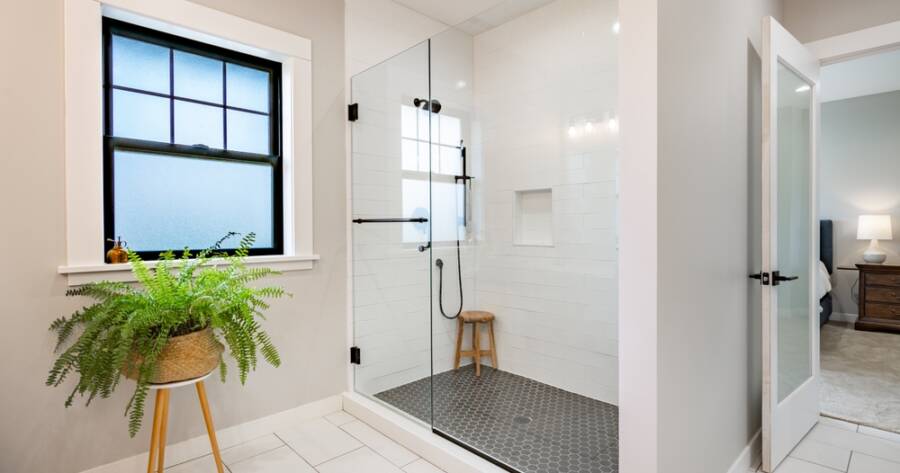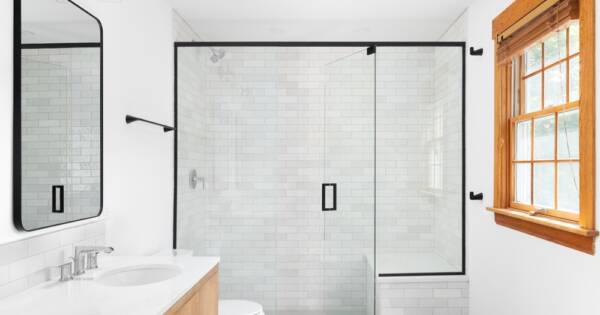Many seniors in the United States struggle to access safe and comfortable showers. However, not all of them know that they may qualify for government assistance to cover the cost of an accessible shower. These installations can significantly improve quality of life and safety at home, especially for those with limited mobility. Discovering these options could be key to enjoying a safe and accessible bathroom.
Government Programs Covering Walk-In Showers
The U.S. government offers several forms of financial assistance to help seniors modify their homes. Programs such as Medicaid and certain federal grants may cover the costs of installing walk-in showers. However, it is important to understand that these programs vary by state and individual personal requirements. Some people may qualify for full or partial coverage, depending on their income level and specific medical needs.
For example, Medicaid may cover home modifications when they are considered necessary for the health or safety of the person, such as the installation of walk-in showers. Be sure to check with your local Medicaid office for more detailed information about specific requirements.
Does Medicare Cover Walk-In Showers?
A common question is whether Medicare, the federal health insurance program for seniors, covers walk-in showers. Medicare generally does not cover the installation of a walk-in shower. However, if a walk-in shower is considered part of necessary medical equipment, such as a medical tub, there may be exceptions. This depends on the medical evaluation and approval of the need for the modification for the patient’s well-being.
If the shower installation is related to a specific medical condition that affects the patient’s mobility, you may be able to receive help through other assistance programs, even if not directly from Medicare.
Financing Options Through Medicaid
Medicaid, which provides health coverage to people with low incomes, is one of the main resources for older adults who need home modifications. Medicaid provides coverage for home modifications if a doctor prescribes the need for an accessible environment. This includes the installation of walk-in showers or accessible bathtubs. It is important for applicants to submit the proper documentation and follow state program procedures to increase their chances of receiving assistance.
Some states may have additional programs that supplement Medicaid and provide specific financial assistance for home modifications, such as walk-in showers. For example, community housing assistance programs may offer grants or low-interest loans for older adults who want to make improvements to their homes.
How to Get Help Paying for a Walk-In Shower
In addition to Medicaid, there are other financing options that can help cover the costs of walk-in showers. State housing programs, as well as federal grants, can be of great help. There are also nonprofit organizations that offer assistance for older adults, helping them access funds for home modifications.
An additional option is personal loans or financing programs offered by some walk-in shower installation companies, which may be convenient for those who do not qualify for government assistance. Some older adults may qualify for housing subsidies, which may include the installation of accessible showers.
Home Improvement Grants
Another important resource is home improvement grants, which some older adults may be able to take advantage of to finance the installation of a walk-in shower. There are both federal and state grants that provide financial support for improving accessibility in homes. Programs such as the Housing and Urban Development Administration (HUD) and Low Income Housing Assistance Funds may be helpful for those who qualify.
In addition to federal grants, some states offer their own assistance for older adults, facilitating access to modifications that improve safety and mobility. Interested individuals should research what programs are available in their local area.
Options Available for Home Improvement
There are several government options and assistance programs to help older adults obtain a walk-in shower that meets their needs. Although requirements vary depending on the state and individual circumstances, financial support can be found at both the federal and local levels.
While Medicare does not cover these types of modifications, Medicaid and other funding sources may be helpful for those who qualify. It is important for older adults and their families to research the available options and consult with experts in home modifications and health insurance to determine which is the best option to improve their quality of life.





